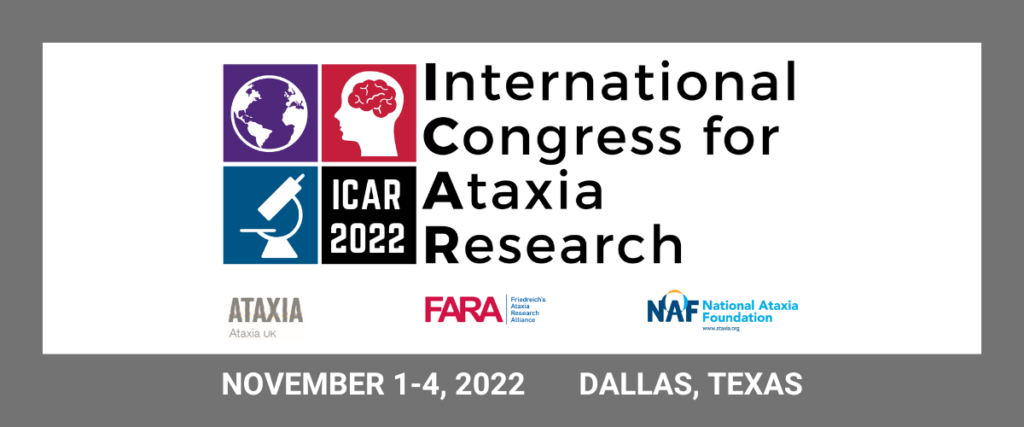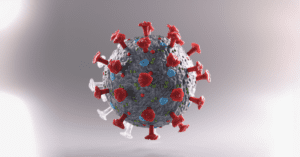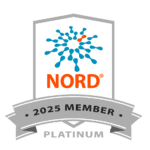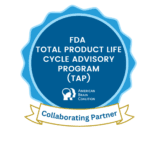
Written by Celeste Suart
Edited by Hayley McLoughlin
The first-ever International Congress for Ataxia Research was held in November 2022. This meeting allowed researchers to catch up on the latest ataxia discoveries and connect with colleagues around the globe. This series of Conference Recaps will share the highlights of the meeting with you!
The Friedreich’s Ataxia Research Alliance, Ataxia UK, and the National Ataxia Foundation joined forces to put on the largest ataxia research meeting ever organized, the 2022 International Congress for Ataxia Research (ICAR).
One of the amazing things about the International Congress for Ataxia Research was the variety of ataxia research being discussed. Previously, when the Friedreich’s Ataxia Research Alliance, Ataxia UK, and the National Ataxia Foundation each held their own conferences, ataxia researchers would often only talk to other researchers studying similar forms of ataxia. But with ICAR, both newcomers and experienced ataxia researchers were able to learn about exciting new ataxia research outside of their typical research focus. For example, a Friedreich’s Ataxia scientist could easily chat with a SCA5 researcher, or a SCA3 researcher could learn from an expert about autoimmune ataxias.
Science is all about finding creative solutions to problems. By talking with experts who study different types of ataxia, these cross-disease-focused conversations are the exact thing that can spark inspiration for new discoveries!
At the beginning of November, you may have seen our Conference Previews sharing what would happen at the conference. If you did not get a chance to read them, here they are:
- ICAR Tuesday Morning: Welcome to the Conference!
- ICAR Tuesday Afternoon: Partnership & Understanding Ataxia
- ICAR Wednesday Morning: Biomarkers & Neurons
- ICAR Wednesday Afternoon: Cerebellum, Therapy Development & Imaging
- ICAR Thursday Morning: Measuring Ataxia in Humans and Animal Models
- ICAR Thursday Afternoon: Discoveries for Potential Ataxia Treatments
- ICAR Friday Morning: Recent Discoveries and Flash Talks
Now that the conference has finished and we have had some time to think, we will be posting Conference Recaps during the next week! These recaps will be slightly longer and have more details about what happened at ICAR. We want to make sure you have a chance to see the highlights from the conference.
If you have any feedback on these recaps, please feel free to send it our way! This is the first time the SCAsource team has written about a scientific conference. We want to make sure these preview and recap articles are interesting and useful for you.
Tuesday Morning: Welcome to ICAR young investigators!
The meeting began with two optional events for young ataxia investigators. This group includes graduate students, medical students, and early career researchers who research ataxia. By having events specifically for young investigators, we hope this encourages networking and builds connections amongst the ataxia research community. This is one way to keep researchers focused on ataxia research. All the young investigator events were organized by the Trainee Organizing Committee, a group of young ataxia investigators from around the globe.
The first event of the day was an informal meet and greet. This was an opportunity for attendees to catch up with colleagues they have not seen in person since before the pandemic, as well as meet new researchers. Some attendees had never been to an ataxia conference before and did not know many people. Going to a conference alone can be intimidating, so one goal of the meet and greet was to welcome new researchers and make them feel welcome.
The next event was the mentorship panel. The young investigator heard from five famous ataxia researchers about their career paths. The panellists included:
- Alexandra Durr, Salpêtrière University Hospital, France
- Gülin Öz, University of Minnesota, United States
- Helen Puccio, University of Lyon, France
- Massimo Pandolfo, McGill University, Canada
- Stefan Pulst, University of Utah, United States
Each of the panellists shared their story of how they became a researcher and why they chose to focus on ataxia research. The attendees were able to ask the panellists about career advice. Some of the questions were related to academic careers – What skills are useful to develop? What advice do you have about publishing? Other questions were more specifically about ataxia – Where do you find ataxia research jobs? What do you think the future of ataxia research is? There were also questions about balancing family responsibilities while doing research, which can be tricky. Overall, this session was a fantastic opportunity for young investigators to get a chance to chat with some very successful senior researchers.
After the mentorship panel was lunchtime, during which more ataxia researchers from all career levels began to arrive for the official start of the International Congress for Ataxia Research. Want to learn more about what happened during the conference? Every day this week we will be posting more conference recaps to fill you in on the highlights from the first International Congress for Ataxia Research.
About the Author and Editor
Celeste Suart is a PhD Candidate at McMaster University, Canada studying DNA damage repair in Spinocerebellar Ataxia type 1. She was a member of the ICAR Trainee organizing Committee and help plan the young investigator events.
Dr. Hayley McLoughlin is an Assistant Professor in the University of Michigan Neurology Department, with a joint appointment in the Department of Human Genetics. Her lab currently focuses on establishing pathogenic mechanisms and therapeutic interventions for SCA3. She has no conflict of interest to declare regarding this session.

Los científicos desarrollan un nuevo enfoque para evaluar la Ataxia en casa
Escrito por Ziyang Zhao Editador por la Dra. Hayley McLoughlin Traducido por Ismael Araujo Aliaga Una aplicación para teléfonos inteligentes recientemente desarrollada permitirá a los pacientes evaluar la ataxia en casa. Existe Read More…

The SCA2 Chronicles: Unmasking COVID-19’s impact on Mind and Movement in a Galaxy Not So Far Away
Written by Kaitlyn Neuman Edited by Celeste Suart, PhD Lessons from a global pandemic: COVID-19 negatively impacts speech function and mental health in SCA2 patients. A short time ago, in a Read More…

Snapshot: O que é Distonia?
Distonia é uma desordem que afeta a maneira como uma pessoa se move. Mais especificamente, pessoas com distonia têm contrações musculares involuntárias, que podem causar posturas anormais. A distonia pode Read More…










